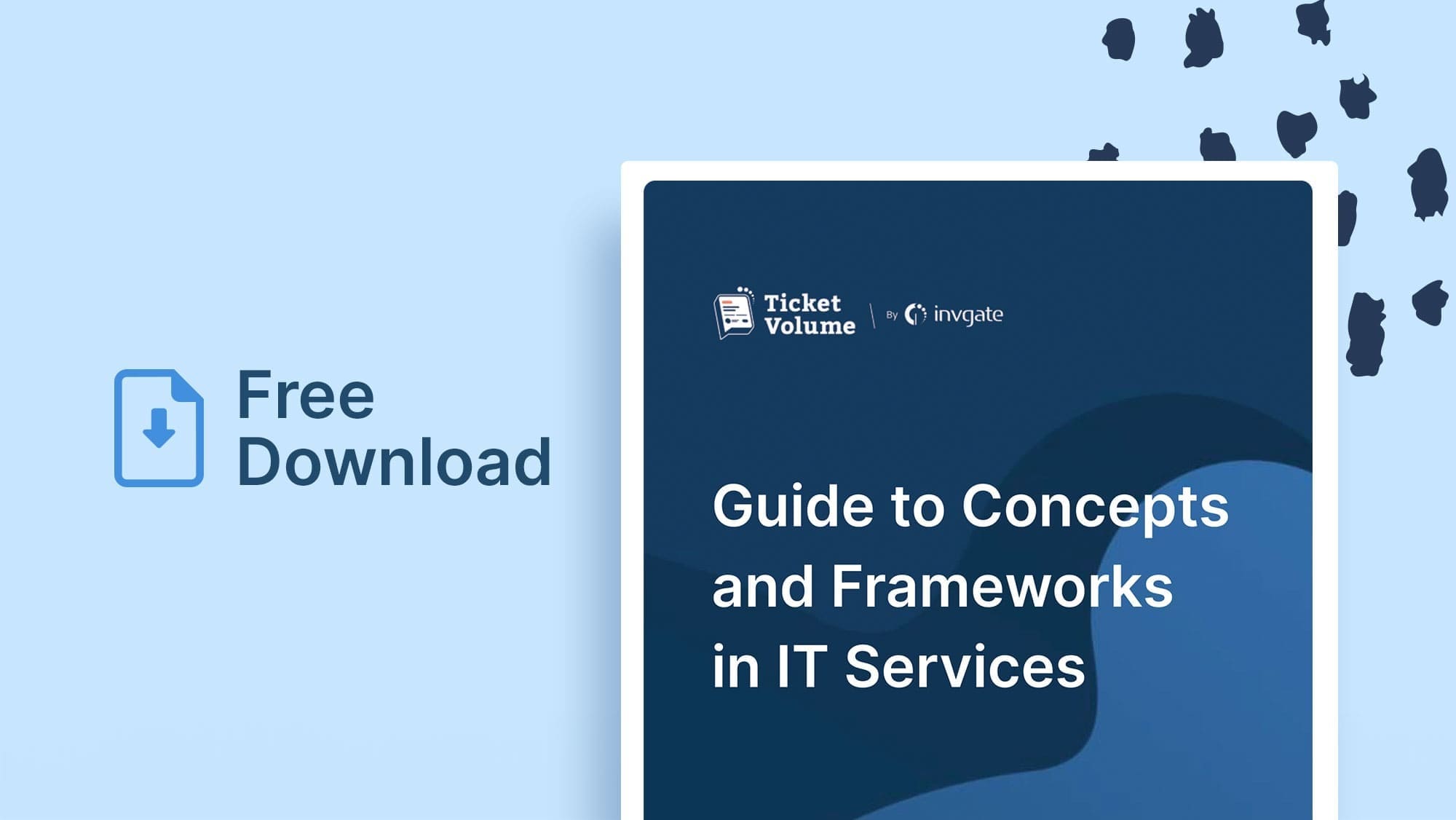Understanding the difference between IT Service Management (ITSM) and ITIL can be confusing, especially since the two terms are often used as if they mean the same thing. They’re closely related, but not interchangeable.
ITSM refers to the overall approach organizations use to deliver and manage IT services for users — from handling incidents to maintaining systems. ITIL, on the other hand, is a structured framework that outlines best practices for implementing ITSM effectively. In short, ITSM defines what needs to be done, while ITIL provides one way to do it.
In this article, we’ll explain how ITSM and ITIL connect, where they differ, and how each contributes to better IT operations.

What is ITSM?
IT Service Management (ITSM) is a structured approach to planning, delivering, operating, and improving the IT services an organization provides to its employees or customers. It focuses on aligning IT services with business objectives to deliver consistent value.
ITSM is organized into process areas that address different aspects of service delivery and support — such as handling incidents, implementing changes, or managing service requests. Together, these processes create a structured framework for maintaining reliability, minimizing service disruptions, and optimizing IT performance.
What is ITIL?
ITIL is a framework that outlines best practices for implementing ITSM. It defines how organizations can structure their ITSM processes across the service lifecycle — from strategy and design to operation and continual improvement.
ITIL has become a global standard for ITSM, but, although it’s the most popular, it isn’t the only option — other frameworks like COBIT, ISO/IEC 20000, and VeriSM also guide ITSM practices in different ways.
Beyond the framework itself, ITIL also includes certification schemes for professionals and organizations, helping standardize skills, terminology, and process maturity across the IT industry.

ITIL vs ITSM: 5 key differences
From the definitions we’ve covered, the first thing to note is that ITSM describes the overall practice of managing IT services, while ITIL is a specific framework that provides guidance on how to implement those practices.
Building on this, there are several other key differences that help clarify how they relate:
-
Flexibility – ITSM can be adapted to fit any organization’s needs, whereas ITIL offers a defined set of best practices that organizations can adopt or tailor.
-
Standardization – ITIL defines standardized processes, roles, and terminology to create consistency, while ITSM itself does not prescribe a single method or language.
-
Lifecycle focus – ITIL emphasizes the full lifecycle of services, from strategy and design to operation and continual improvement. ITSM focuses broadly on delivering and managing services without enforcing a particular lifecycle model.
-
Certifications – ITIL includes formal certifications for both individuals and organizations to validate knowledge and process adoption, while ITSM does not have a single certification system.
-
Who’s behind it? – ITSM isn’t owned or managed by a single organization; it’s a broad IT discipline shaped by industry practices and evolving methodologies. ITIL, however, is maintained by PeopleCert, making it a more formalized and structured framework.
Key similarities between ITSM and ITIL
While ITSM and ITIL have important differences, they also share several core goals and principles. Understanding these similarities helps clarify why ITIL exists in the first place and how it fits within ITSM practices:
-
Focus on service quality – Both aim to improve IT service delivery and ensure that IT supports business objectives effectively.
-
Process-driven approach – Both organize IT work into defined processes, such as Incident Management, Change Management, and service requests, to provide structure and clarity.
-
Continuous improvement – Both encourage regular review and enhancement of services to reduce downtime, increase efficiency, and adapt to changing business needs.
-
Alignment with the business – Both emphasize that IT services should support broader organizational goals and deliver measurable value, rather than functioning in isolation.
ITIL and ITSM certifications
Certifications play an important role in ITSM because they provide a way to standardize knowledge, validate skills, and ensure that IT service practices are applied consistently.
This is a broad and flexible field, so having recognized frameworks and ITSM certifications helps organizations and professionals align their work with proven best practices and measurable standards.
ITIL certifications for professionals
ITIL certifications help IT professionals gain and demonstrate expertise in Service Management practices. They include:
- ITIL Foundation – Covers core concepts and terminology.
- ITIL Managing Professional (MP) – Focuses on practical skills for running IT services.
- ITIL Strategic Leader (SL) – Aligns IT strategy with business goals.
- ITIL Master – Demonstrates advanced mastery of ITIL principles in real-world settings.
Other ITSM-related certifications
ITIL is only one framework within the broader ITSM landscape. Other standards also provide certifications that validate knowledge and practices in different areas of IT Service Management:
- COBIT focuses on IT governance and risk management.
- ISO/IEC 20000 is an international standard for IT Service Management systems.
- VeriSM offers a flexible approach that integrates ITSM with broader business management practices.
These certifications allow organizations and professionals to adopt methodologies suited to their specific environments, compliance requirements, or operational priorities.
Tool and organizational certifications
ITSM platforms often offer certifications that show proficiency in implementing processes within the software itself. Certifications for tools like ServiceNow, BMC Remedy, or InvGate Service Management validate technical skills and the ability to align the software with ITSM best practices.
Organizations can also pursue certification or accreditation to demonstrate that their processes meet recognized frameworks like ITIL or ISO/IEC 20000. This provides stakeholders with assurance that IT services are delivered consistently and according to industry standards.
Using InvGate as your ITIL-aligned ITSM software
InvGate Service Management is designed to help organizations implement ITSM practices that are in line with ITIL guidelines. The platform provides structured processes for incident, problem, change, and request management, making it easier for IT teams to follow best practices while maintaining visibility and control over service delivery.
Beyond process support, InvGate includes features that facilitate compliance with ITIL principles, such as workflow automation, reporting, and dashboards that track service performance and continual improvement initiatives.
Try InvGate Service Management free for 30 days and experience how structured processes, automation, and real-time insights can improve your IT service delivery.














.jpg?upsize=true&upscale=true&width=780&height=205&name=how-to-create-a-service-level-agreement%20(1).jpg)
